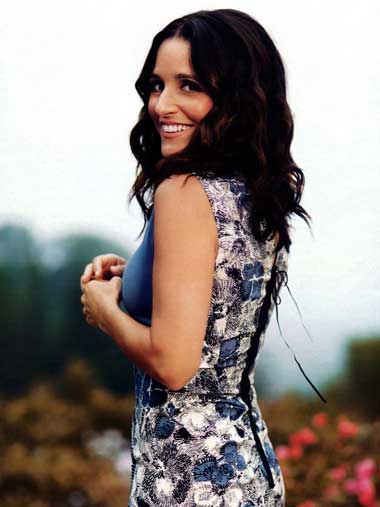At the 2017 SAG Awards , several winners gave powerful messages. Here are excerpts from speeches by Julia Louis-Dreyfus, who won an award for "Veep." Mahershala Ali, who took home an award for "Moonlight," and David Harbour, the star of Stranger Things, who won the SAG equivalent of best TV drama. Julia Louis-Dreyfus, "Veep" Whether the Russians did or did not hack the voting of tonight's SAG Awards, I look out on the million, or probably even a million and a half people in this room, and I say, this award is legitimate, and I won! I'm the winner, the winner is me — landslide!
... To a less insane note, I'd like to say that I am a very proud member of this union, and I'm thrilled to be here tonight, and I thank the Screen Actors Guild. I want you all to know that I am the daughter of an immigrant. My father fled religious persecution in Nazi-occupied France, and I'm an American patriot. And I love this country. And because I love this country, I am horrified by its blemishes. This immigrant ban is a blemish, and it is un-American.
... Our sister guild, the [Writers Guild], made a statement today that I would like to read because I am in complete agreeance with it. Our guilds are unions of storytellers who have always welcomed those from the nations and of varying beliefs who wish to share their creativity with America. We are grateful for them. We stand with them, and we will fight for them. Thank you very much.
Mahershala Ali, "Moonlight" What I've learned from working on "Moonlight" is, we see what happens when you persecute people. They fold into themselves. And what I was so grateful about in having the opportunity to play Juan was, playing a gentleman who saw a young man folding into himself as a result of the persecution of his community, and taking that opportunity to uplift him and tell him that he mattered and that he was O.K. and accept him and, uh — I hope that we do a better job of that.
You know, when we kind of get caught up in the minutiae, the details that make us all different, I think there's two ways of seeing that. There's an opportunity to see the texture of that person, the characteristics that make them unique.
And then there's an opportunity to go to war about it, and to say that that person is different than me, and I don't like you, so let's battle. My mother is an ordained minister. I'm a Muslim. She didn't do back flips when I called her to tell her I converted 17 years ago. But I tell you now, we put things to the side, and I'm able to see her, she's able to see me — we love each other, the love has grown, and that stuff in minutiae. It's not that important.

